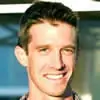There's no simple formula you can use to determine your ideal cadence, but simply by going through this process and paying attention to the numbers you'll develop hunches that, more often than not, will pay off. "It's an ongoing quest for information," says Friel. "You don't learn everything you need to know immediately because there are many variables. So you just keep playing with that stuff with a view toward answering the question: 'Would you be better off riding at a different cadence than you normally ride at?' "
Racing with a Power Meter
A power meter is very useful in races, but not quite in the same way it is in training. In races you're able to work harder and perform at a higher level than in any workout. For this reason it's a good idea to record your power output during races and use this data to establish your appropriate training intensities for the next period of training. But for the same reason, it's best not to rely on your power meter too heavily to control your effort in races.
More: 4 Easy Steps to Begin Training with a Power Meter
The key to a successful race lies in distributing your true maximum effort over the full race distance. This is something you can only do by feel. The information you need to find your limit is available in the subjective feedback provided to your mind by your body and your brain. It takes time to learn how to fully exploit this feedback, but even a modestly developed ability to race by feel is better than allowing a power meter, speed and distance device, or heart rate monitor tell you how hard you can go.
"I don't want the athlete to use the power meter as a gauge of how to race," says Friel.
In training, a power meter helps you work harder, reach higher, and consequently become fitter than you would without it. But in a race there's a risk of your power meter holding you back. If you've trained well and tapered properly, you're probably ready to do something you've never done before -- something the numbers suggest you can't do. In this case you're better off relying on the world's oldest form of objective feedback in racing: chasing the person ahead of you.
More: 9 Post-Ride Recovery Rituals
 Ready to ride? Search for a cycling event
Ready to ride? Search for a cycling event


